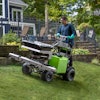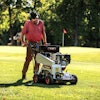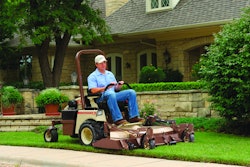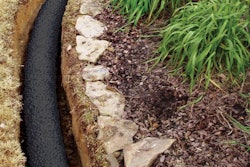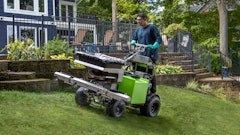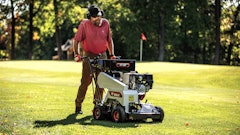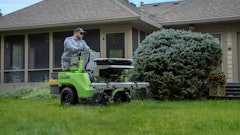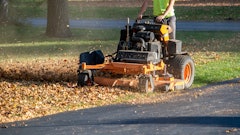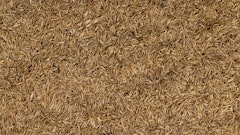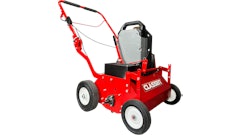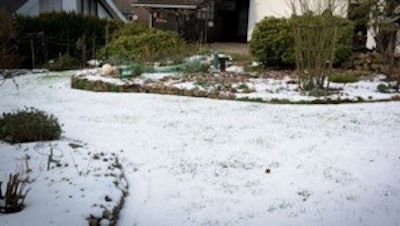
No matter what part of the country you live in, winter conditions can be hard on outdoor perennial plants, lawns, shrubs and trees. No need to build a glass house to protect them all. There is an easy way to help protect your customers grass and greenery so that they’ll perk right back up next spring. It’s called mulch.
What is mulch?
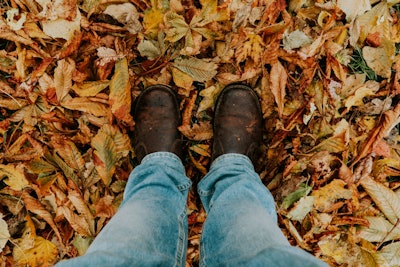
A good 2 to 4 inches of mulch under each plant, tree, and shrub, as well as a layer across any open soil areas, is what you need for a beneficial level of coverage.
Why is mulch helpful to protect gardens from winter weather?
Mulch is a wonder product in garden protection. It acts like a blanket over a garden, insulating and protecting roots by creating a more consistent temperature, below ground level. Plants can go dormant, essentially hibernating until the spring. Without that effect, a couple of warm days mid-winter can confuse the plants: they may start their growth cycle but the inevitable return of the cold will kill that in short order.
Mulch helps to maintain moisture and keep nutrients in the soil. Since most moisture in the ground is lost due to evaporation and dew is the biggest cause of that loss. Dew is largely created by condensation of the moisture in the soil, so a barrier of mulch helps to prevent dew from forming and evaporating. Retained moisture will help you have a lush lawn and garden come spring.
It also works to minimize soil erosion that happens in two ways:
- Heaving - where the cycle of freeze and thaw in the winter months can cause the soil to contract and expand, pushing plant roots closer to the surface and exposing them to frost, frigid wind and so on.
- Come spring thaw and rains, mulch can help to stop the soil from eroding and washing away, or compacting because of heavy downpours.
Finally, mulch prevents weeds from growing. If you don’t enjoy the back-breaking work of weeding, come spring, adding mulch in the fall / early winter will save you a lot of effort!
Mulch in most (but not all) formats will break down over time, which goes some way to enrich your soil. It works like the layer of leaves that protect a forest floor in the wild.
What mulch options are available?
If you have pets, avoid mulch made from cocoa bean by-products - these would be toxic to your dogs and unfortunately have a pleasant scent that could attract both your pets and pests. That warning aside, here are some great options:
Pine bark or needle straw
Pine trees have their own natural mulch, thanks to the needles that they drop. This is a wonderful mulch, that breaks down quickly, for other areas of the garden too. If you have pine trees on your property, you can re-distribute the dropped needles, so it’s inexpensive as well. They do tend to draw in spider mites however, and can wash away easily if used on a sloped area.
Wood chip or recycled wood
These break down over time but have the added benefit of looking very pretty as part of a landscape design. Available in a variety of colors, the chips are often dyed naturally so as to be safe for your garden.
Hemp mulch
This newer option is great if dealing with soil that has varying pH levels and you’re worried about adding anything that could alter that. Hemp mulch is pH neutral, biodegradable and is particularly effective where extreme temperatures are the norm.
Straw or hay
While good as insulation for the ground, they aren’t as pretty and certainly require some effort to rake up, come spring. That said, the hollow formation of a straw needle creates insulation with trapped air that is second to none. The downside to hay can be the weed seeds that come with it, creating more problems next spring than it is solving over winter.
Leaves
Have you ever watched someone mow the leaves on their lawn in the fall, rather than raking them up? That’s because shredded leaves make excellent mulch. They will decompose over the winter, leaving a protected lawn and garden, and are easy to pile up around the base of trees and shrubs. If you don’t shred them, they can make a soggy, thick blanket that won’t allow any moisture or air to flow. While you want to protect the soil, you don’t want to choke it.
Grass clippings
The fastest mulch to decompose, due to their high water content, they can be effective but take note of whether or not you’ve used any herbicides or pesticides on the grass before you use the clippings as mulch, as these can harm your plants and shrubs.
Rubber mulch
Resistant to the weather, difficult to wash away and hardy, this is a good option particularly for areas of your garden where you might consider leaving it year-round, as it doesn’t break down over time. Available in a range of colors, this can be the perfect accent to your landscape design.

